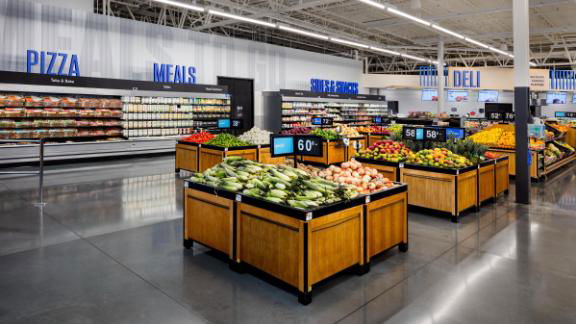Walmart is redesigning its stores nationwide; El Paso’s Dyer Street store is what they’ll look like

EL PASO, Texas — Walmart is giving its massive stores a makeover, with a redesign that mimics its app so shoppers can more easily find what they’re looking for.
The Walmart Supercenter at 5631 Dyer Street in El Paso has just completed remodeling and is sporting the new look. The redesign will roll out to 200 stores across the U.S. by the end of the year and 1,000 more by the end of 2021.
In a push to get more people to download its app and use it while shopping, Walmart is encouraging shoppers to download it prior to entering the store to assist in navigating the store, search for more options online and pay once finished.
Shoppers will also notice that Walmart’s departments are being more clearly organized and new, larger signage will be installed. Walmart said the new signs were inspired by airports because they are “best-in-class examples of how to navigate large groups of people,” especially in light of the pandemic that has sent people flocking to stock up on essentials.
The redesign process began last year, before Covid-19, but includes features that people have gotten used to such as contact-less payments. For example, customers can use “Scan & Go” on its app so people don’t have to interact with others while paying. The redesign was inspired by customer feedback and might be tweaked depending on shoppers’ response.
Walmart’s digital redesign is another way it’s taking on Amazon, its largest rival. Earlier this month, it rolled out Walmart+, a $98-a-year membership plan includes free shipping on items $35 and over, gas discounts and new payment tools. The service rolled out in mid-September.
Its primary business is groceries, which account for more than half of its sales. But groceries are a notoriously low-margin business. So Walmart in recent years has been building out its clothing and home goods’ offerings. It just launched a new clothing brand called Free Assembly, a 55 piece collection ranges from $9 to $45.
Rivals have also had success with their own private-label clothing brands, including Target, Amazon and even Costco.
